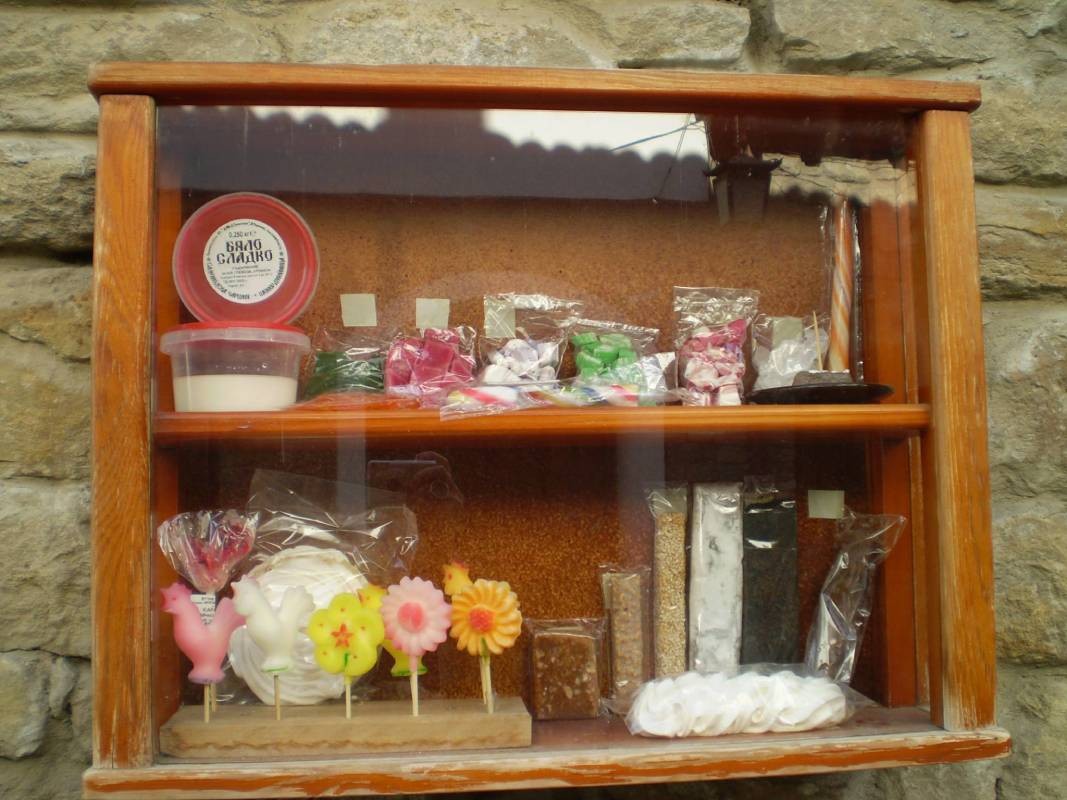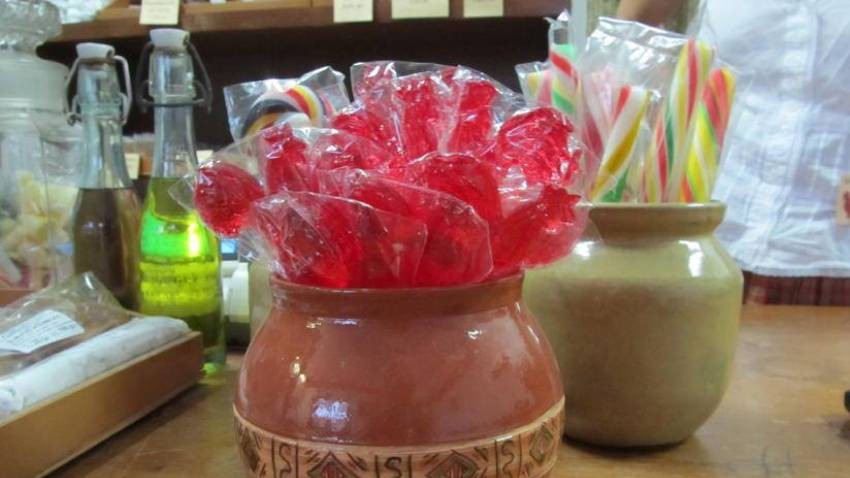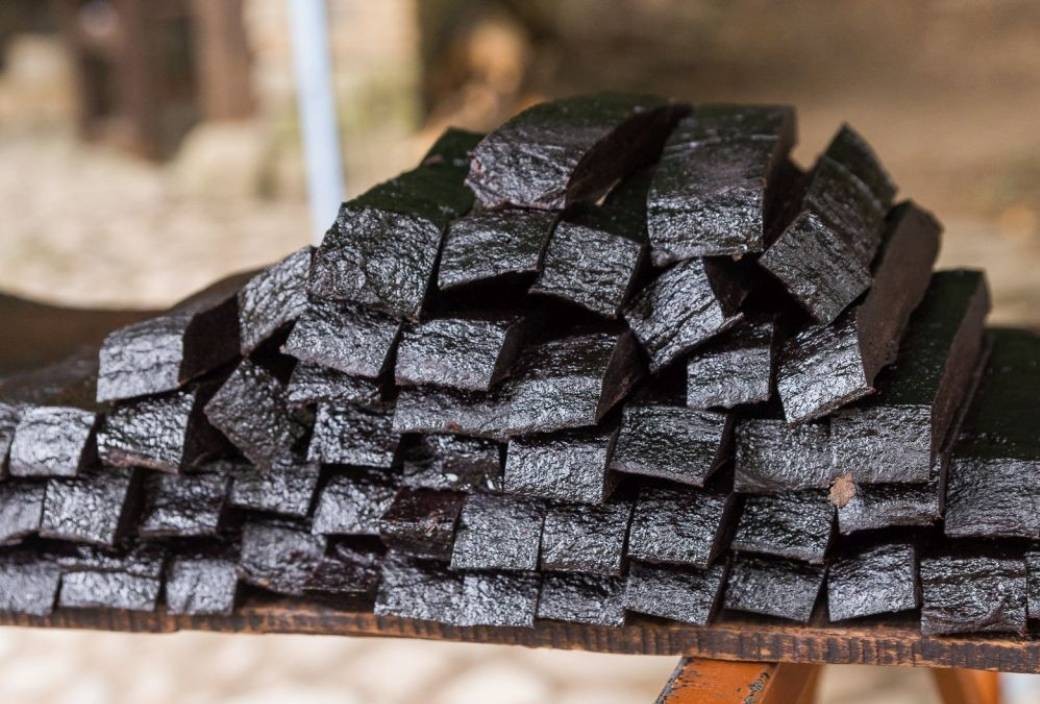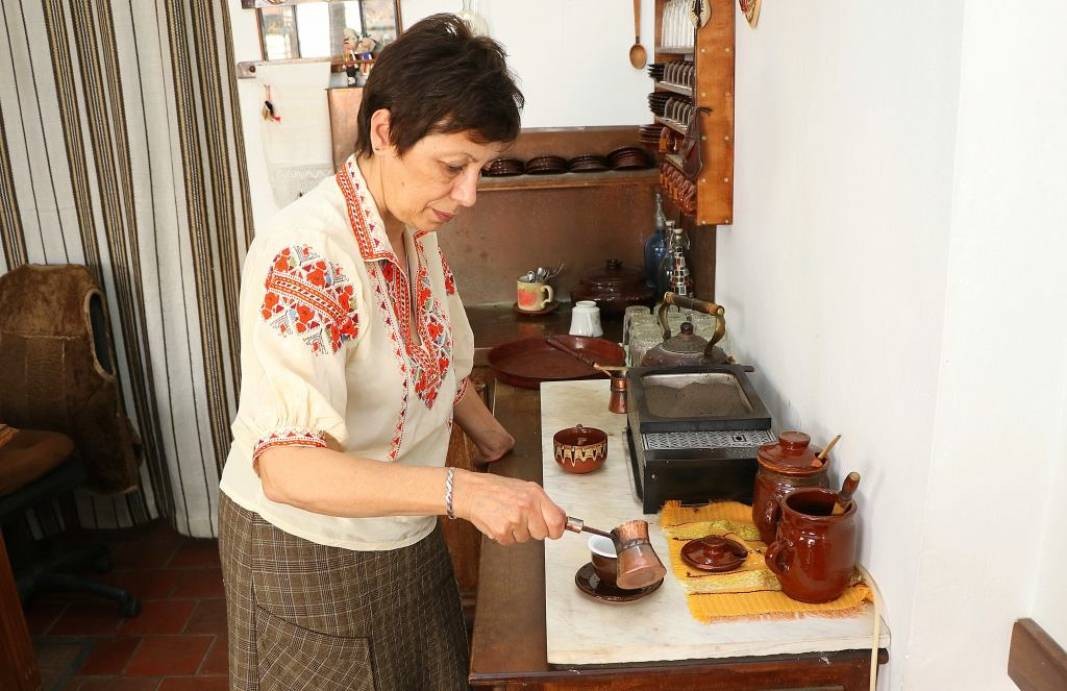The mellow days of autumn are the perfect time to take a stroll among the stores lining the Samovodska charshia in Veliko Tarnovo. The old crafts street and marketplace, now an ethnographic and architectural complex, dates back to the mid-19th century, when farmers from the nearby villages would come to display their produce in the street. Workshops and stores were soon set up where master blacksmiths, weavers, potters, carpenters and confectioners displayed and sold their wares.
The Samovodska charshia has preserved its authentic atmosphere precisely thanks to the artisans who welcome clients literally inside their workshops. In a series of publications, we tell you more about them, and our first stopover is at the confectioners’ workshop, or as they were called in the 19th century – the shekerdzhiinitsa (from sheker – sugar). 
Walking down the cobblestones of the Samovodska charshia, a big sign catches the eye showing we are entering the shekerdzhiinitsa. The shop window is crammed full of sweetmeats with bizarre names, unknown and even strange to the untrained eye. How would we describe pestil, for example – a typical treat made out of prunes, which in these parts goes by the name of “Gabrovo chocolate”, or balsudzhuk, or chopped sweets. Turkish delight is a bit more familiar, and here you can find it with walnuts, or natural – with no essences at all.
And what is most important here is that they are all hand-made, with no preservatives. And it is only the natural sugar used that helps them keep longer, says Nia Nikolova. She is only 17 but is already familiar with the ingredients and the way all sweetmeats here are made:
“This is a family business, a spontaneous decision by my mother and my grandmother who started work here 21 years ago, and did research to find out how most of the things are made and learn the recipes. This is one of the oldest workshops in the charshia. It is such a pleasure doing this job, working with people, learning new recipes. Here you can buy Tarnovo halva, pestil, chopped sweets, caramel rooster lollipops, fondant lollipops, meringue, Turkish delight waffles, halva waffles, marmalade etc. 
For example, pestil is made of prunes, people compare it to chocolate but it has no added sugar. It is more like marmalade but is harder. For the sugar figures we use flour, sugar, glucose, starch and milk powder but no preservatives.”
Nia herself says she likes the honey and walnut crumble cookies because they are made by her grandmother and her mother – Nelly Boncheva and Denitsa Pashova, the master candy makers at the shekerdzhiinitsa. “I help out in the store during holidays, I am almost 17 now and this is the first year I have been allowed to handle the clients by myself,” says Nia Nikolova:
“Foreigners have never seen pestil and balsudzhuk. Balsudzhuk is made of walnuts, dipped in grape must, the sweet juice of the grapes before it is made into wine. The so-called white marmalade is made of water, sugar, glucose and bergamot essence. It is served with a spoon in a glass of water. It goes really well with coffee, which we make in sand. 
The coffee is heated up in the sand and one pot is enough for one cup of coffee. Coffee in the sand is made in many places around Bulgaria, but in Samovodska charshia we are the only place you can get it. It foams in the sand and that makes it so much tastier. It takes me about 2-3 minutes to make a cup of coffee but you have to be careful because it can boil over so easily. Once it starts foaming you have to remove it right away if you want there to be froth. People want to try it, they want to see how coffee in sand is made. Lots of people want to have coffee, they want to take a seat at the tables in the shekerdzhiinitsa and drink it right here,” says 17-year old Nia Nikolova.
Translated and posted by Milena Daynova
Photos: velikoturnovo.info, Facebook / Samovodska charshia night and Crafts Festival, Etara open-air ethnographic museum
International Labor Day on May 1 in the mass consciousness of Bulgarians is often associated with the period of socialism and the grandiose demonstrations that the older generation of Bulgarians remembers well. However, it has much deeper roots. Its..
Digital nomadism, a lifestyle where people choose remote work so they can travel and live in different environments, is becoming a phenomenon on the way to overturn our ideas about work and way of life. In this regard, Bulgaria offers a palette of..
On 26 and 27 April, Sevlievo in Central Bulgaria is hosting the festival “Seme Balgarsko ”. For its 11 th edition, the organizers have a colourful traditional lineup. “The festival will enable visitors to meet manufacturers of Bulgarian..
Students from Burgas have combined their interest in technology and nature conservation by creating a digital game in which a sea robot collects plastic..
On May 10 and 11, the interactive science and technology centre "TechnoMagicLand" at Sofia Tech Park will host a national Rubik's Cube speed-solving..
An e-learning platform developed by scientists at the Cyrillo-Methodian Research Centre at the Bulgarian Academy of Sciences facilitates the introduction..

+359 2 9336 661
